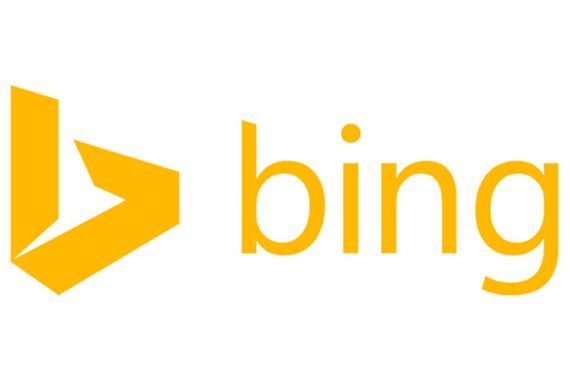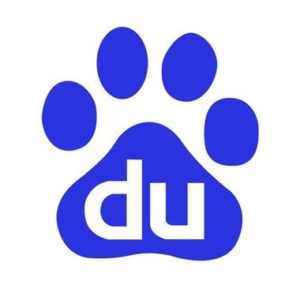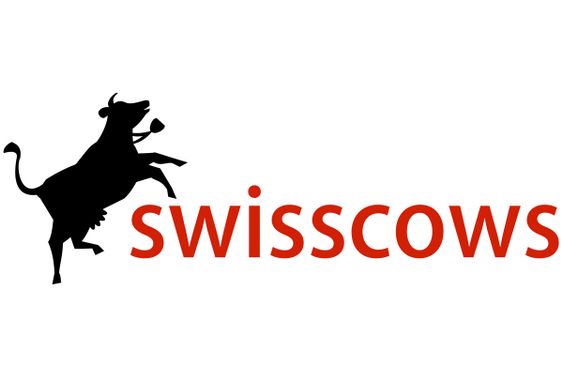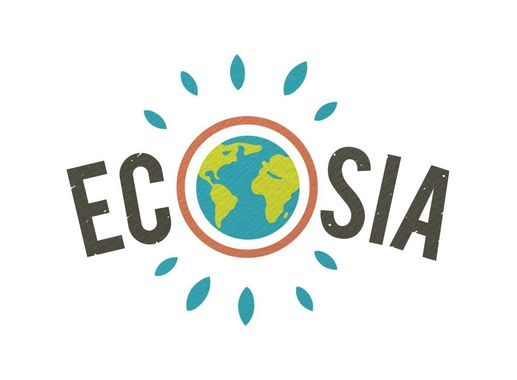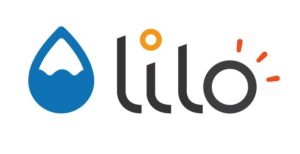Warning: Undefined variable $post in /home/clients/41c746e85d5027220921da2635efec21/sites/itoubib.fr/wp-content/themes/generatepress_child/functions.php on line 26
Warning: Attempt to read property "ID" on null in /home/clients/41c746e85d5027220921da2635efec21/sites/itoubib.fr/wp-content/themes/generatepress_child/functions.php on line 26
Warning: Undefined variable $crunchifytitle in /home/clients/41c746e85d5027220921da2635efec21/sites/itoubib.fr/wp-content/themes/generatepress_child/functions.php on line 32
Warning: Trying to access array offset on value of type bool in /home/clients/41c746e85d5027220921da2635efec21/sites/itoubib.fr/wp-content/themes/generatepress_child/functions.php on line 36
Warning: Undefined variable $linkedInURL in /home/clients/41c746e85d5027220921da2635efec21/sites/itoubib.fr/wp-content/themes/generatepress_child/functions.php on line 43
First practical article in this new series on alternatives to Google, to all lords all honor, I start with its historical service: the search engine. On this point the graph below shows the distribution of search engines in France in December 2020. Explicit, isn't it?
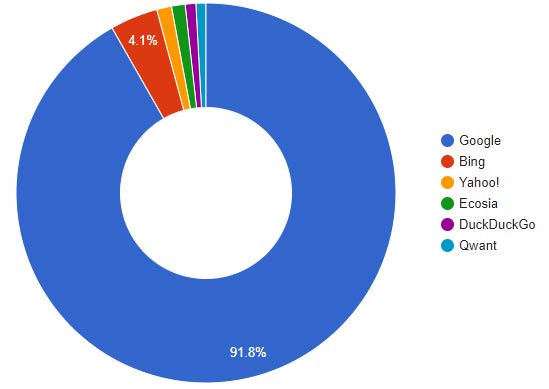
Living without Google search is an option. There are many alternatives. This article is unlikely to be exhaustive and does not purport to be exhaustive. Your returns are welcome.
But by the way, why do we use a search engine? The question seems relevant when looking for an alternative.
A clear interface
This may sound anecdotal, but Google's appearance in the landscape of old search engines with overloaded interface was really welcome. Not only were the results relevant, but especially in the 56k/ADSL era, the almost immediate display of a clear no-frills list was life-saving.
So I looked for solutions equivalent to the speed and clarity of the list of results.
Open search and closed search
At the beginning of the web, the search was organized between search engines like Altavista (RIP!) and directories like Yahoo. The fundamental difference was the type of information sought. Today, despite the ubiquity of search engines, this difference persists.
Open search
For example, looking for a company's website or the social security fund's website is like doing a directory search. We know what we're looking for, but we don't have the web address. As with the venerable paper directory or online directories, the search engine easily finds the result from the name entered in the search field. You don't need artificial intelligence backed by a quantum computer to find the answer. The interest of a powerful algorithm for this type of research is therefore very limited. I'll call it "closed search." It will easily find a solution on any search engine.
Closed search
Conversely, looking for an unknown site whose idea of the theme, very precise information (for example, how to write the right code in the setting of its website …) or doing a fundamental research on a subject requires the use of relevant algorithms interpreting our request to provide us with the right list of results. This type of search that I will call "open search" will often find a quick and relevant solution in the best search engines.
Based on these principles, open research and closed research, let us ask ourselves the question of the distribution of each type of research in our everyday lives. I did a quick survey of my last month of searching at Google: more than half of my searches correspond to closed searches. Significant, surely not, but it gives a first orientation and above all makes it possible to ask a first question: if more than half of my searches are closed searches, why constantly use Google which will not provide me with a service superior to another engine, but on the other hand will record these searches to exploit them?
Open search and the "results bubble": how to get caught up in your certainties
Apart from privacy, is there any other interest in not using Google? The answer is yes and it applies to other search engines. At issue: the "result bubble."
The principle starts with a good intention (albeit, but let's be fair): to better answer a question, I need to know as much as I can about you and your desires/needs to find the right answers.
So Google and other engines use your search history and the data they have about you to "adapt" your search results to your deep self. Delicate intention that still poses a problem.
As we saw during an open search, we go on a little adventure without precise knowledge of where we are going to arrive AND IT is GOOD OUR OBJECTIVE !!!!! We want to be exhaustive even if we spend a little time there. Of course it only engages me.
Take the test: Search on your computer with your Google session open in your browser and then do the same search with exactly the same terms on another computer without you having logped Google on it. It is likely that the list of results will be different or at least unranked in the same order. Annoying, isn't it?
The specifications:
- Do as well (better??) as Google in open search
- A clear, no-frills, fast interface
- Don't tailor results to the user
- The ability to use it on both computers and smartphones
- And of course privacy.
The other "mastodon"
When looking for an alternative to Google, Microsoft's search engine is a must. Or rather tries to establish itself with its almost 3% global market share.
A little heavier to load with its changing wallpapers, but very nice, I like Bing since it presents results that I find quite similar to Google. It is of course supported on most smartphones.
Image, videos, mapping, news, we find on Bing most of the services offered by the google search engine.
One element remains, the monitoring of our activities by another giant, Microsoft: tracing IP addresses, recording searches and cookies are part of the panoply.
It is always possible not to have a Microsoft account where, identically for Google, not having logged into your account during searches to avoid tracking and problems with the result bubble. But why bother with these precautions on Bing when we will have the same constraints with Google, the power of the algorithm in addition.
The oldest
As old as the mainstream internet (or almost), Yahoo is surely not my first choice: heaviness of its interface for results that were not always at the level. Moreover, since then, it is the results of Bing that Yahoo uses for its search part.
Tracing, result bubble, Yahoo brings no advantage compared to Bing who provides him with the results.
Why use the copy instead of the original?
The French engine
Qwant is the French search engine supposed to counter American hegemony with, of course, privacy in mind. I hated Qwant from the beginning because of its interface. I started writing this article with these elements, but in the meantime Qwant has deployed in version 4. And now it changes everything. Gone is the principle of research divided into three columns. The interface is clearer and faster, it becomes more legible. Thank you Qwant. Note that the site offers a junior version. The site offers an app on Android and iOS but it is possible on some browsers to set it up as the default search engine.
The results seem relevant to me. Advertising from Microsoft, I did some comparative testing with Bing. The results are almost identical. Qwant reports it on its website. It has its own indexing robot. With this task taking, I quote, "resources and time", Qwant mixes its resources and that of Bing to refine its results in the meantime.
As for privacy, the site makes it its main argument, no cookies, no tracing.
Qwant is free. It is financed by advertising inserted in the results, but still without tracing, and the often state fundraising, europe's independence from the American engines becoming strategic. The ads are mixed with the results, but well identifiable.
With its relevant privacy policy, Bing-based results and new, clearer, lighter interface, Qwant offers a real alternative. Hoping that he will be able to empower himself and get rid of Bing in the near future.
I will not get into the discussion about the quality and efficiency of Russian and Chinese engines. We will simply say that in the context of this article, it seems appropriate to avoid entrusting its data to this type of site.
The duck that goes up
DuckDuckGo is not a search engine as such. This is a metamotor, understand that it uses the results of other engines like Bing, Yandex, Yahoo and Wikipedia.
Respect for privacy above all, this is the main argument of the site that does not record any navigation data, no cookies … It should be noted that there is still a service based in the United States, so we must be careful what the U.S. government might impose on society.
No result bubble, no account required, but possible customization (language, location, etc.).
Light, clear and fast, images and videos, DuckDuckGo has many advantages. It is available on Android and iOS as well as as direct settings on some browsers.
The only shadow on the board is funding (if it's free…). The site does targeted advertising like Google, but without tracking you. You do a search, the site displays an advertisement based on your search of the moment without using your previous searches. This would be satisfactory as an answer if the company were a little more transparent about its finances, which is not the case to date.
Google without Google…
Startpage is not a search engine. It does not offer any elaborate algorithms. No, it just provides you with Google's search power without any tracking. To do this, the site provides the interface between you and the web giant.
When you arrive on a simple page, you type your search the same as on Google. Startpage does the research for you and reproduces the results in a format much identical to that of its big brother. It offers an Android and iOS app.
No tracing, no cookies so no results bubble.
Starpage is probably the slowest search engine I present to you. That is probably the only drawback we could find him.
Namely, the site is free for individuals. The publishing company, based in the Netherlands, provides solutions to companies which ensures its remuneration.
The Swiss safe
An interesting site in many ways. First of all, it is Swiss and therefore hosted in Switzerland with particularly draconian privacy legislation. Then it does not register your IP address, does not use cookies, does not collect any data on our systems, does not seek to know our location. finite? Ha no… it does not give results to pornographic sites and violent videos. whew!!!!
Swisscows then uses a semantic engine to conduct its research. To simplify: it is a matter of presenting the answers to a search by trying to understand what the user's question implies. Using the principle of open research mentioned above, semantic research should lead to more relevant results. On the other hand, there is no interest in closed research. At first glance the site has partnered with Bing to manage search results. I say a priori because nothing on the site reports it apart from the mention "in partnership with Bing" at the bottom of the result page. Some quick tests show similar or almost identical answers between Swisscows and Bing, without the announcements of course. So I'm divided on the concept of semantic search when everything lands in Bing's engine. I prefer the idea that I will have with Swisscows the results of Bing without the inconveniences.
The site is fast. The list of results may be a little austere (black on a grey background, but you have to lose the habit of blue on white …). It also offers image, video, music and translation tabs. Interestingly, on the left side, the site has keywords in tiles that allow you to add a criterion to the search at the click of a button. An Android app exists. Nothing seen iOS side.
Last question, the engine being free … The answer is simple, Swisscows is financed by donating Wikipedia identically. You can use the engine perfectly without paying, but a donation is still possible to support the site.
Let's make it simple: I love it!
Solidarity search engines: selling for a good cause
That is another way of looking at it. Even if we provide revenue to research sites when we click on banner ads, why not donate a portion of the revenue to humanitarian, environmental, etc. This is the service these sites offer.
The site relies on Bing for its results, the presentation is identical to its supplier. The site offers an Android and iOS app.
It is financed by advertising like Google and Bing. It donates part of the income for reforestation. I find the meter of planted trees very optimistic, but hey …
Regarding privacy, the policy is quite clear, your data is anonymized after a week and you can activate the "Do not track" function of browsers. The risk of a result bubble remains in my opinion. The site using a cookie, it seems to me possible to skew the results.
Lilo is a French site that works as a metamotor search like DuckDuckGo so. Here privacy is clearly explained. You don't need an account to use it, but a cookie is still there to identify you. No third-party cookie on the other hand that allows behavioral targeting. The use of a metamotor allows to free a little from the result bubble. However, Lilo himself must re-shape the results with his own algorithm that obeys our explained rules.
It is financed by advertising like Google and Bing. The money collected appears in the form of drops of water that you can leave at your leisure on different associations. It's pretty cool.
The results are quickly displayed for a metamotor. Namely, the site offers options for images, videos and maps tabs between their site, Google or Bing. It has an Android and iOS app.
You may have understood, I really appreciate this engine. Exhaustive (metamotor), fast for what I could see, simple, respectful of privacy note and useful to all. What more can you ask for!!!!
An eco-friendly search engine that relies on Google. Simple interface, a little too much for my taste. Very little information about privacy. It uses Google's adsense and analytics functions to generate revenue. So avoid privacy issues and result bubbles. The ecological aspect remains…
So what's the alternative?
The conclusion is not obvious. Everyone will be able to find in the engines mentioned the one that suits them. The list is obviously not exhaustive and those who would like to look elsewhere can leave the Wikipedia page here: https://fr.wikipedia.org/wiki/Liste_de_moteurs_de_recherche.
It is interesting to see that there are very few credible alternatives to Google and Bing if we leave out the Chinese and Russian engines. Most of the sites described here do not offer own indexing, but take the results of major platforms with the notable exception of Qwant which slowly creates its own index. Metamotors, rather Google or rather Bing, you have the choice of weapons while preserving part or total privacy.
Two podiums to differentiate those who prefer Google's results on one side and Bing's results on the other.
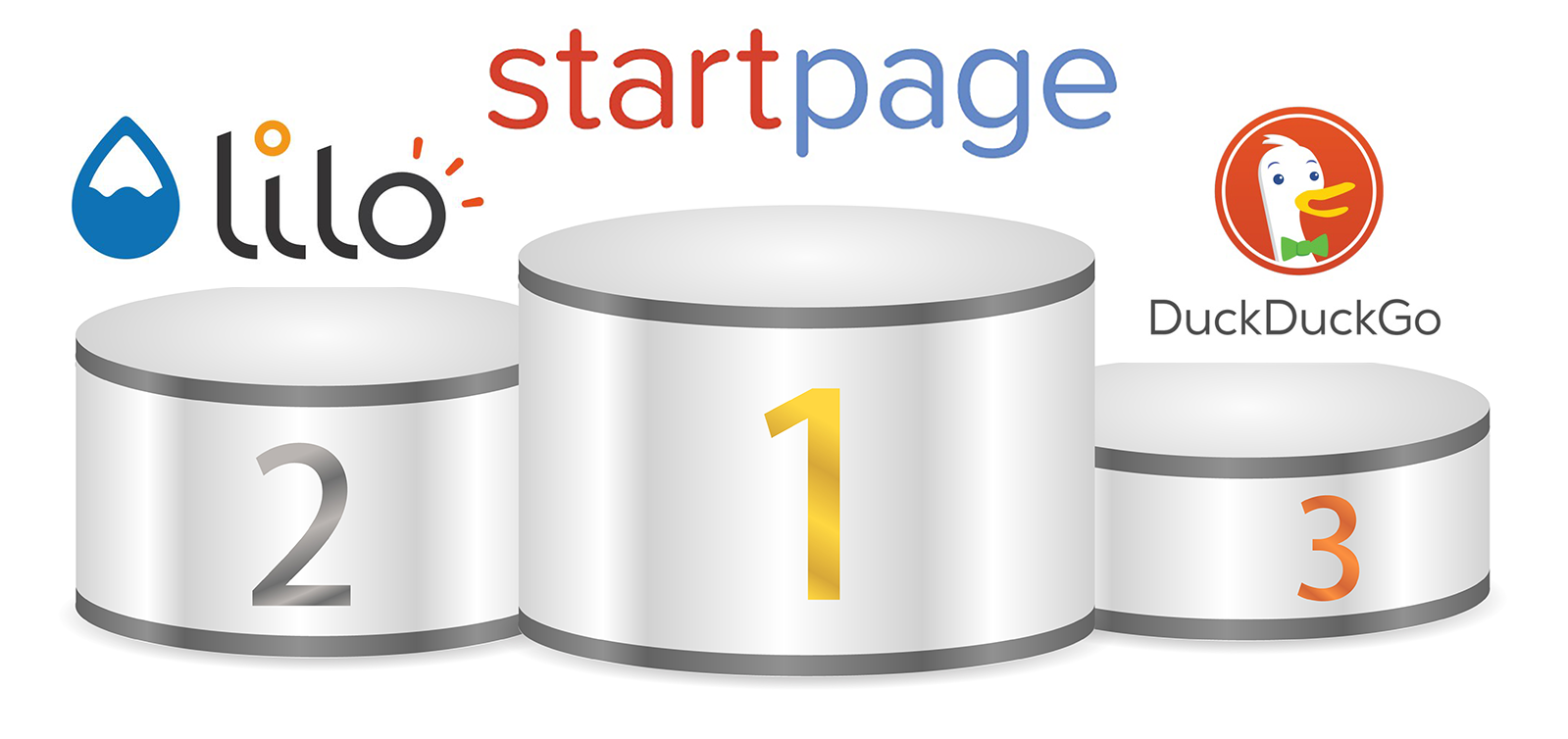
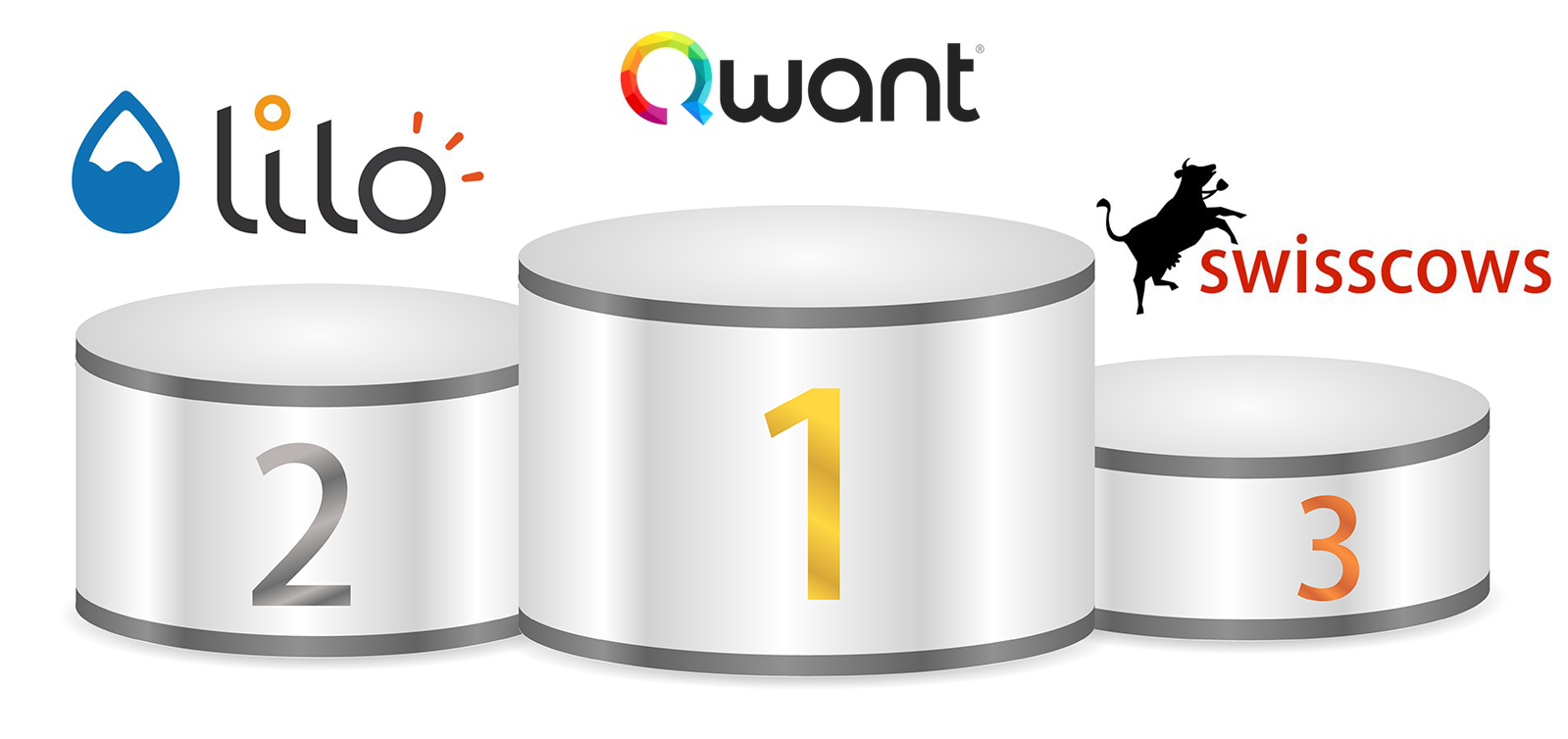
A final podium focused solely on privacy.
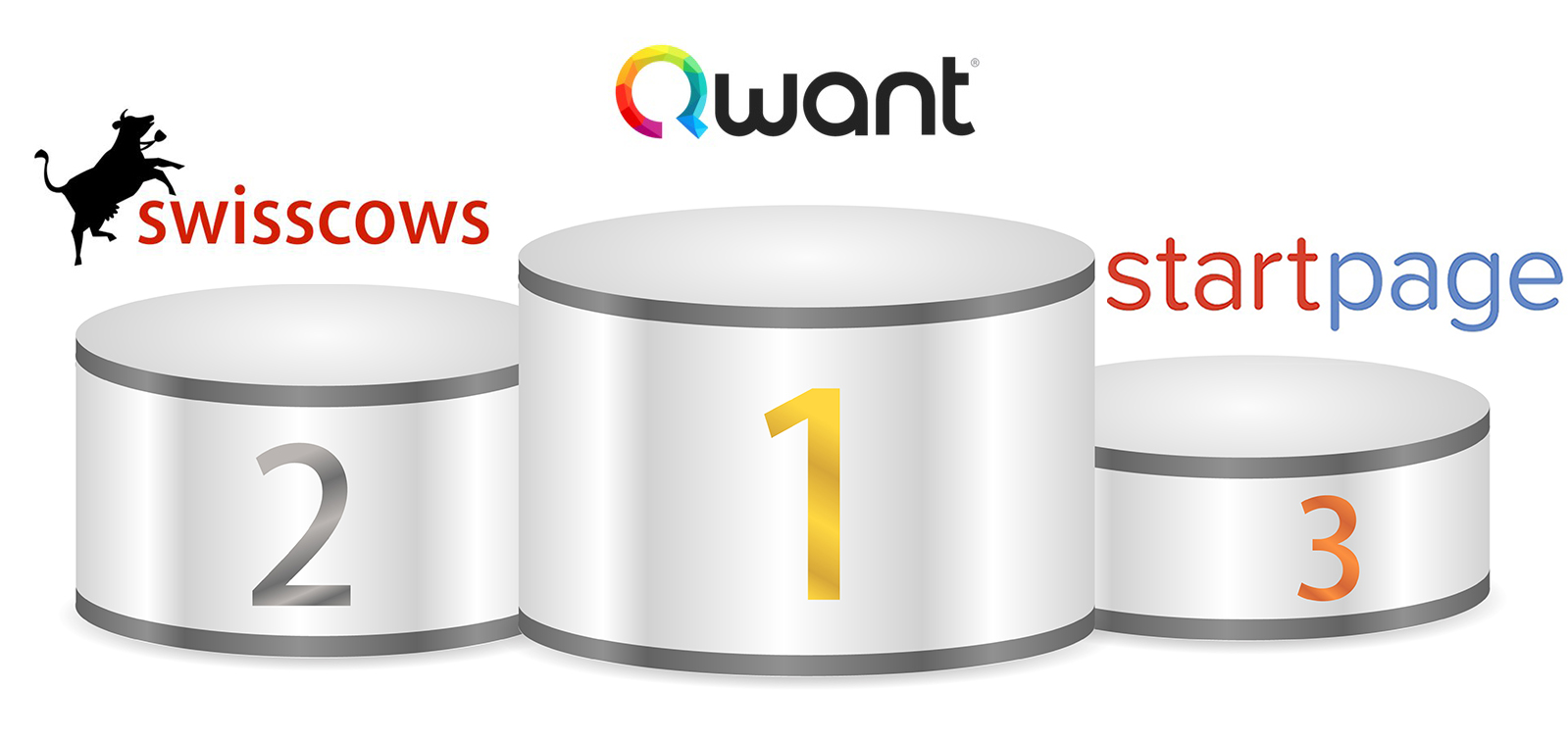
Regarding me and after a more or less long period of testing each engine, here is my podium:
- Qwant: the only one that has embarked on autonomy from Google and Bing even though it will take time to perform as well. Its new interface is winning.
- Lilo: the metamotor tripod, privacy and ecology convinced me.
- Swisscows: Absolute control of one's privacy with Bing's results. Unstoppable.
Your comments and feedback are welcome.
Next stop: Gmail…
